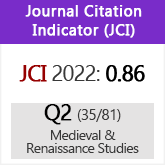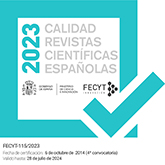Las plantas que llegaron de Levante. Acerca del legado alimentario islámico en la Cataluña Medieval
DOI:
https://doi.org/10.3989/aem.2001.v31.i2.269Keywords:
foodstuffs, al-Andalus, cultural lending, foodstuffs transferring, andalusian agriculture, 10th-13th centuries, sugar-cane, rice, citrics, egg-plant, spinachAbstract
During the High Middle Ages, the Islam encouraged a deep agricultural renewal in the lands between India and Península Ibérica. The new musulman agriculture introduced in the Western Mediterranean countries some unknown vegetable products, such as sugar-cane, rice, citrics, egg-plant and spinach. Between the 10th and 13th centuries, these five products played an important role in the andalusian cookery. In the Late Middle Ages, the Catalan adopted some islamic cultural elements. High Christian cookery introduced these new products to their own style and created new recepies quite different from their islamic models.
Downloads
Download data is not yet available.
Downloads
Published
2001-12-30
How to Cite
Riera Melis, A. (2001). Las plantas que llegaron de Levante. Acerca del legado alimentario islámico en la Cataluña Medieval. Anuario De Estudios Medievales, 31(2), 787–841. https://doi.org/10.3989/aem.2001.v31.i2.269
Issue
Section
Monographies
License
Copyright (c) 2001 Consejo Superior de Investigaciones Científicas (CSIC)

This work is licensed under a Creative Commons Attribution 4.0 International License.
© CSIC. Manuscripts published in both the printed and online versions of this Journal are the property of Consejo Superior de Investigaciones Científicas, and quoting this source is a requirement for any partial or full reproduction.All contents of this electronic edition, except where otherwise noted, are distributed under a “Creative Commons Attribution 4.0 International” (CC BY 4.0) License. You may read here the basic information and the legal text of the license. The indication of the CC BY 4.0 License must be expressly stated in this way when necessary.
Self-archiving in repositories, personal webpages or similar, of any version other than the published by the Editor, is not allowed.














